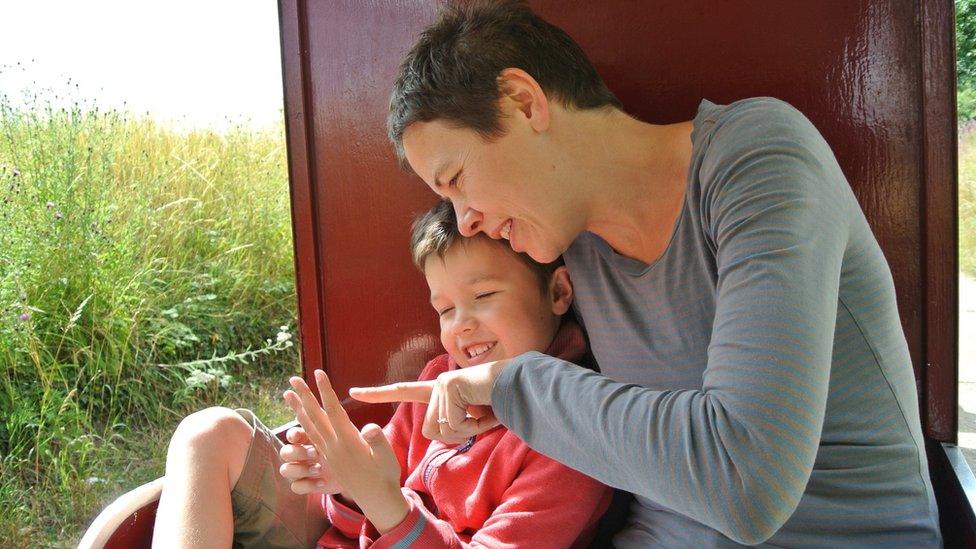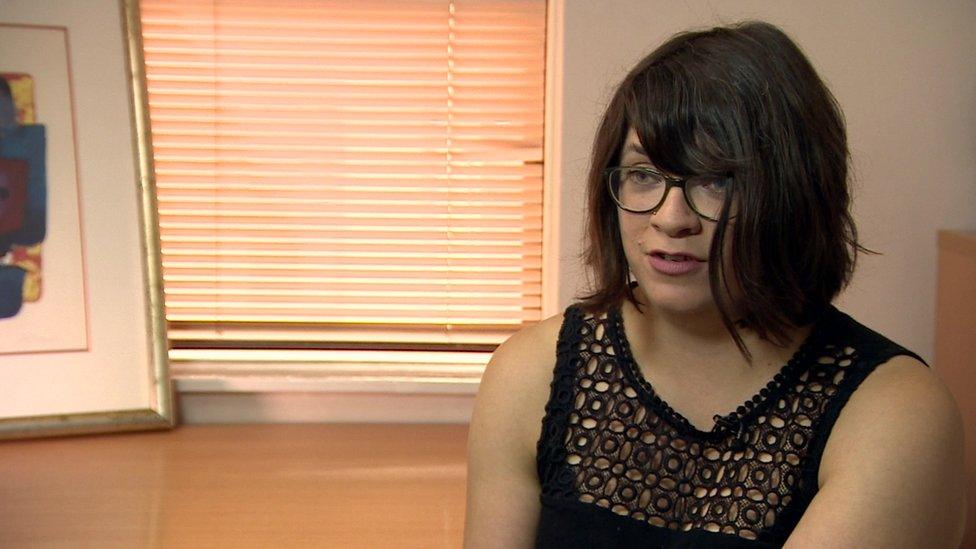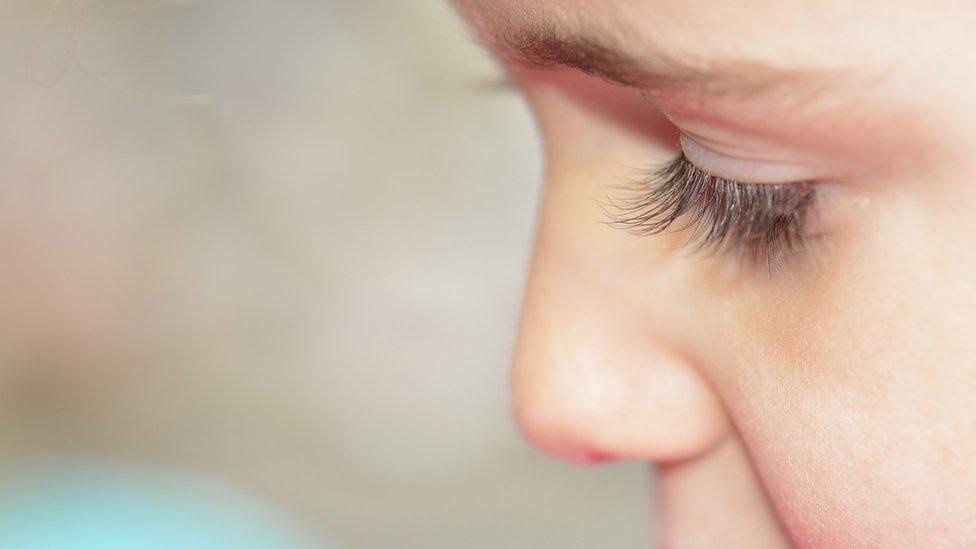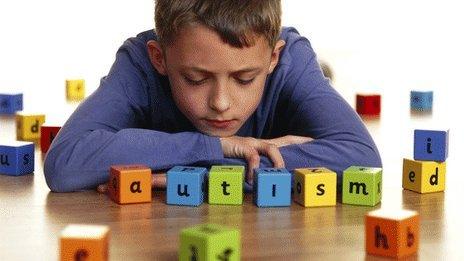'Super-parenting' improves children's autism
- Published
- comments

Louisa with her son Frank
Giving mums and dads the skills to become "super parents" can dramatically improve their child's autism, a long-term study has shown.
In the training, parents watched films of themselves playing with their child while a therapist gave precise tips for helping their child communicate.
"What is remarkable is the pay-off," said Louisa Harrison, who has seen a huge improvement in her son Frank.
Experts said the results, published in the Lancet, external, were "hugely cheering".
The study focused on children with severe autism, who were often unable to talk to their parents.

For Louisa's son Frank, lamp-posts were a marker of his progress using the method.
Louisa, from Cheshire, said: "He loves watching lamp-posts come on in our street, so autumn is a very exciting time for us.
"Several years ago it was a largely silent interaction, but now he will be so chatty, 'Mummy, Mummy, look they've gone on in a different order.'
"If you'd told me four years ago he'd come out with a sentence like that then I'd be crying," Louisa added.
Better than good
The researchers' idea was simple: improve mum's and dad's parenting to improve the social skills of the child.
Dr Catherine Aldred, a consultant speech and language therapist with Stockport NHS Trust, stressed it was not about blaming the parents.
"We're taking the parent's interaction with the child and taking it to a 'super' level, these children need more than 'good enough', they need something exceptional," she said.
Exceptional is hard work. Parents were recorded with their child, who might have been sitting, playing alone.
But mum and dad were then shown a highlights package of the easily-missed moments when the autistic child subtly moved to play with their parents.
Communication specialists then worked with the parents to give them the skills to get the most out of these brief moments.
In small steps, it eventually moved on to getting the child to speak more.
Louisa told the BBC: "You notice things you wouldn't notice in real time.
"Things like waiting, giving Frank plenty of time to communicate and commenting rather than questioning him, which puts on pressure to respond.
"You feel like you're being really skilled-up by these people who trust your judgement about what makes your child tick," she added.

The trial with 152 families started shortly after the children were diagnosed around the age of three.
Normally their symptoms would get worse with age.
In the half of the families given the usual therapies, 50% were severely autistic at the beginning and that percentage predictably increased to 63% after six years.
But the opposite happened in the families given the intensive training.
Adumea explains on Radio 4's Today what an autism study has meant for her and her son Kofi.
Among these, 55% of the children were severely autistic at the beginning and 46% after six years.
The report's lead author, Prof Jonathan Green from the University of Manchester, said the results were "extraordinary".
He added: "This is not a 'cure', in the sense that the children who demonstrated improvements will still show remaining symptoms".
But he told BBC Radio 4's Today programme that the research suggested working with parents could lead to long-term improvements.
He said: "It suggests that what the parents have been able to embed into the family has sustained even after the end of the therapy which is really encouraging."
Tracey Sawyer-Copus said the autism study had a "positive" effect on her son Aaron
Adumea, whose son Kofi, 12, took part in the research, told the BBC: "What's so powerful about this therapy is the fact that it extends beyond the hour you spend within the therapist's office, because it carries on into the home.
"And as Professor Green said, it embeds into family life and the way in which you communicate with your children and from what you learn from that, you can then tell schools: 'This is working, try this'."
One in 100 people develops some degree of autism, but there is no drug treatment and families often desperately turn to quack therapies.
Dr James Cusack, the director of science at the charity Autistica, said: "Parents commonly tell us that they fight for a diagnosis, but when they finally get it, the cupboard is bare, with little information or tailored support available to them.
"Too often, parents fall victim to the false claims of charlatans who prey on desperate families.
"These results look promising for the many thousands of parents who want to find early interventions for their children based on solid science," he added.
Dr Max Davie, from the Royal College of Paediatrics and Child Health, said: "[This] is a hugely cheering message for families."
Follow James on Twitter., external
- Published26 October 2016

- Published31 August 2016

- Published3 July 2015

- Published25 April 2012
